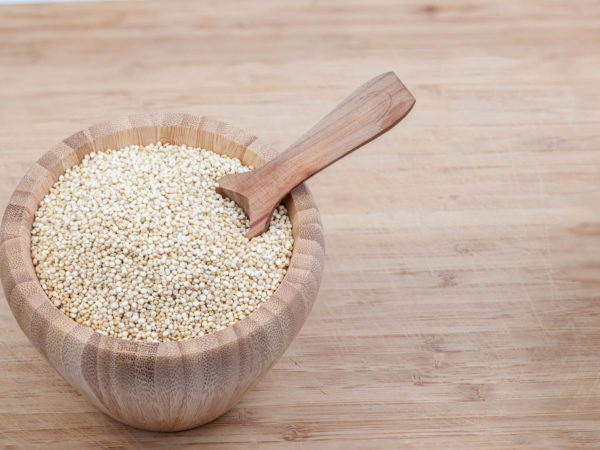प्रोटीन मांसपेशियों के निर्माण और मरम्मत के लिए एक आवश्यक पोषक तत्व है, जिससे यह उन व्यक्तियों के लिए विशेष रूप से महत्वपूर्ण हो जाता है जो नियमित व्यायाम में संलग्न होते हैं, जैसे कि जिम जाने वाले। हालांकि, प्रोटीन सामान्य आबादी के लिए भी महत्वपूर्ण है क्योंकि यह एंजाइम, हार्मोन और अन्य महत्वपूर्ण ऊतकों के गठन सहित कई शारीरिक कार्यों में महत्वपूर्ण भूमिका निभाता है।

प्रोटीन की मात्रा का उपभोग विभिन्न कारकों पर निर्भर करता है, जिसमें उम्र, लिंग, वजन, गतिविधि स्तर और समग्र स्वास्थ्य स्थिति शामिल है। प्रोटीन के लिए अनुशंसित आहार भत्ता (आरडीए) सामान्य आबादी के लिए प्रति दिन शरीर के वजन के प्रति किलोग्राम 0.8 ग्राम प्रोटीन है। हालांकि, नियमित व्यायाम में संलग्न व्यक्तियों के लिए, आवश्यक प्रोटीन की मात्रा अधिक हो सकती है।
जिम जाने वालों के लिए जो मांसपेशियों और ताकत का निर्माण करना चाहते हैं, आमतौर पर प्रति दिन शरीर के वजन के प्रति किलोग्राम 1.2 और 1.7 ग्राम प्रोटीन का उपभोग करने की सिफारिश की जाती है। यह बढ़ा हुआ प्रोटीन सेवन व्यायाम के बाद मांसपेशियों की वसूली और विकास का समर्थन करने में मदद कर सकता है।

सामान्य आबादी के लिए, आमतौर पर प्रति दिन शरीर के वजन के प्रति किलोग्राम लगभग 0.8 ग्राम प्रोटीन के प्रोटीन सेवन का लक्ष्य रखने की सिफारिश की जाती है। हालांकि, कुछ स्वास्थ्य स्थितियों वाले व्यक्ति, जैसे कि क्रोनिक किडनी रोग, को अपने प्रोटीन सेवन को सीमित करने की आवश्यकता हो सकती है।
यह ध्यान रखना महत्वपूर्ण है कि अत्यधिक मात्रा में प्रोटीन का सेवन स्वास्थ्य के लिए हानिकारक हो सकता है, खासकर अंतर्निहित गुर्दे या यकृत रोग वाले व्यक्तियों के लिए। इसलिए, व्यक्तिगत आवश्यकताओं और स्वास्थ्य स्थिति के आधार पर उपयुक्त प्रोटीन सेवन निर्धारित करने के लिए एक स्वास्थ्य देखभाल पेशेवर या एक पंजीकृत आहार विशेषज्ञ से परामर्श करना आवश्यक है।

प्रोटीन एक आवश्यक पोषक तत्व है जो कई शारीरिक कार्यों में महत्वपूर्ण भूमिका निभाता है। प्रोटीन का सेवन करने के कुछ फायदे और नुकसान यहां दिए गए हैं:
लाभ:

- Muscle growth and repair: Protein is essential for building and repairing muscles, making it particularly important for individuals who engage in regular exercise.
- Satiety: Protein is more satiating than carbohydrates or fats, meaning that it can help to reduce hunger and increase feelings of fullness.
- Bone health: Protein is important for maintaining bone health and can help to reduce the risk of osteoporosis.
- Immune function: Protein is necessary for the formation of antibodies, which help to protect against infection and disease.
- Blood sugar control: Protein can help to regulate blood sugar levels and may be beneficial for individuals with diabetes.
नुकसान:
- Kidney damage: Consuming excessive amounts of protein can increase the workload on the kidneys and may be harmful to individuals with underlying kidney disease.
- Dehydration: High protein diets may increase water loss from the body and can lead to dehydration if fluid intake is not adequate.
- Nutrient deficiencies: Consuming high amounts of protein can displace other important nutrients, such as fiber, vitamins, and minerals, leading to nutrient deficiencies.
- Digestive issues: Some individuals may experience digestive issues, such as bloating, constipation, or diarrhea, when consuming high amounts of protein.
- Environmental impact: The production of protein, particularly animal-based protein, can have a significant environmental impact, including greenhouse gas emissions, land use, and water use.
यह ध्यान रखना महत्वपूर्ण है कि ऊपर सूचीबद्ध नुकसान आमतौर पर उपभोग से जुड़े होते हैं excessive amounts of protein. अनुशंसित दैनिक सेवन के भीतर मध्यम मात्रा में प्रोटीन का सेवन करना क्या है? generally considered safe and beneficial for most individuals.


